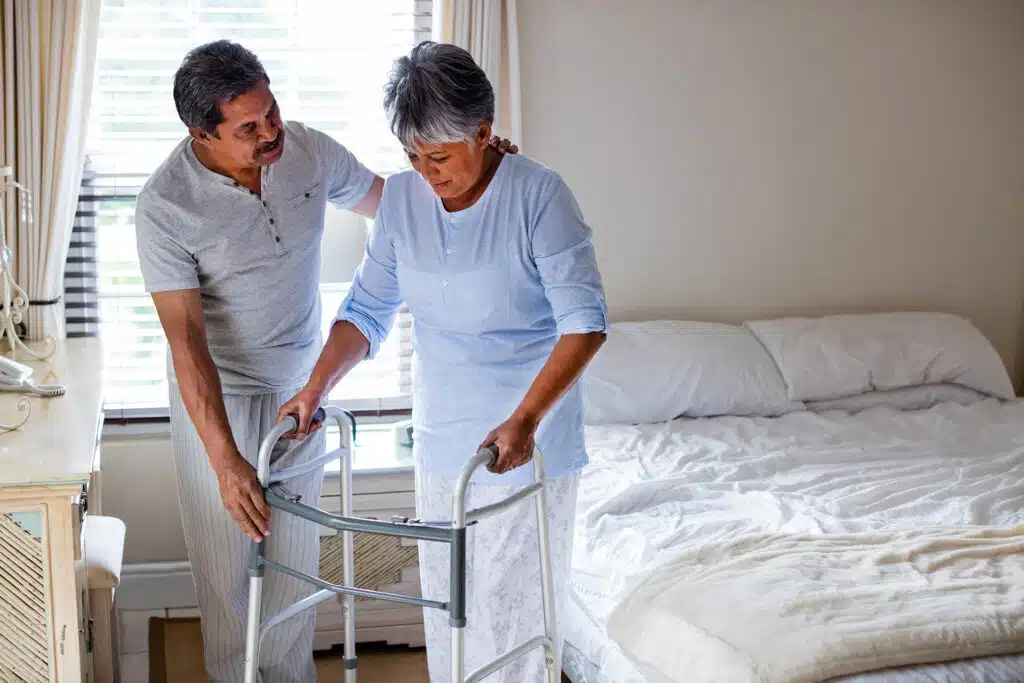Osteoporosis is often called the “silent disease” because it develops slowly without obvious symptoms—until a bone fracture occurs. It happens when bones lose density and become weaker, raising the risk of fractures in the hips, spine, and wrists. This condition affects millions of people worldwide, especially older adults, but with the right steps, it can be prevented and managed.
At Familiar Roads Home Healthcare, we believe that awareness and prevention are key to protecting your bone health.
Bones are living tissue, constantly breaking down and rebuilding. With osteoporosis, the body loses bone faster than it can replace it. This leads to porous, brittle bones that are more prone to fractures—even from minor falls or bumps.
Risk Factors for Osteoporosis
Several factors can increase the likelihood of developing osteoporosis:
Age: Bones naturally become thinner as you grow older.
Family History: A family history of osteoporosis increases risk.
Race: People of European and Asian descent are more likely to develop osteoporosis.
Tobacco Use: Smoking accelerates bone loss.
Low Activity Level: Lack of weight-bearing exercise (like walking or strength training) weakens bones.
Alcohol Intake: Excessive drinking reduces bone strength.
Vitamin Deficiency: Inadequate calcium and vitamin D intake contribute to poor bone health.
Menopause: Decreased estrogen in women speeds up bone loss.

Osteoporosis is typically diagnosed using a Bone Mineral Density (DEXA) scan, a painless test that measures bone strength.
Exercise: Weight-bearing and muscle-strengthening exercises help keep bones strong.
Nutrition: Adequate calcium and vitamin D intake supports bone health.
Lifestyle Changes: Quit smoking and limit alcohol use.
Fall Prevention: Simple home modifications—like removing tripping hazards, adding grab bars, and improving lighting—help reduce the risk of fractures.
Medication: In some cases, doctors may prescribe medications to slow bone loss or build new bone.
Even small lifestyle changes can make a big difference in bone health:
Walk or do light strength training several times a week.
Add calcium-rich foods like dairy, leafy greens, and fortified products to your diet.
Spend time outdoors for natural vitamin D (or discuss supplements with your doctor).
Keep your home safe to avoid falls.
At Familiar Roads Home Healthcare, we focus on preventive care and wellness support. Our caregivers can help with mobility, nutrition, exercise routines, and fall-proofing your home. We also encourage routine bone health check-ups to stay ahead of potential risks.
✅ Schedule a Bone Health Review with Familiar Roads Home Healthcare today.
📍 Contact Familiar Roads Home Healthcare:
📞 215-526-1251
📧 info@familiarroadshomehealth.com
Your bones are your foundation—take steps now to keep them strong for life.